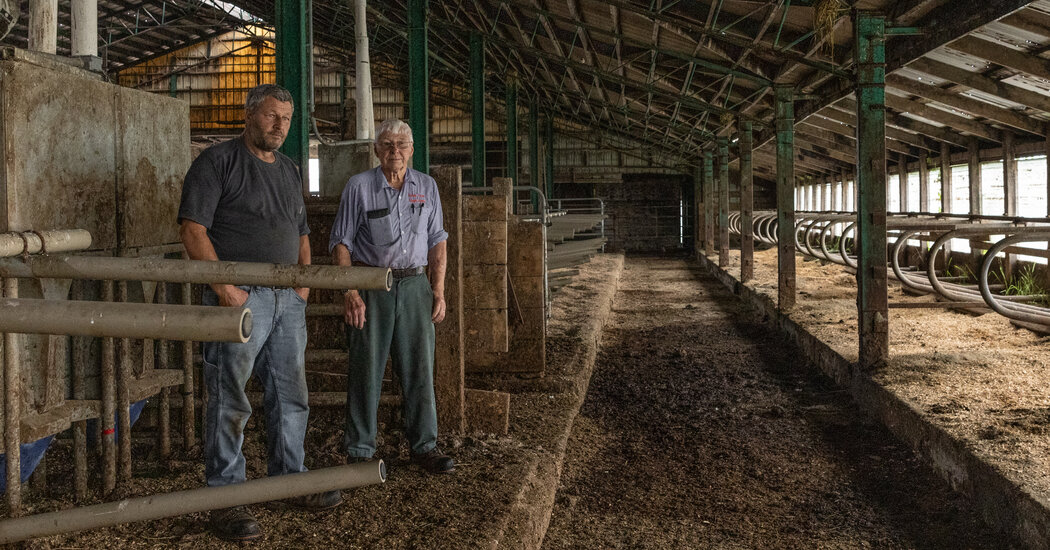Allison Jumper’s family was a picture of healthy living. Active kids. Wholesome meals. A freezer stocked with organic beef from her in-laws’ farm in Maine.
Then in late 2020, she got a devastating call from her brother-in-law. High levels of harmful “forever chemicals” had been detected on their farm and in their cows’ milk, and they were getting shut down.
At first, Mrs. Jumper worried only about her in-laws’ livelihoods. But soon, her mind went somewhere else: to her own children’s mysterious health issues, including startlingly high cholesterol levels.
“Then it hit me,” she said at her home in Durham, N.H. “Could it be the beef?”
Unknown to them, her family’s beloved organic farm had been fertilized decades earlier with sewage sludge tainted by a dangerous class of chemicals linked to certain cancers, liver disease and a host of other health problems. Their cattle had grazed on contaminated pastures, making the beef and milk too dangerous to eat. Yet her family had been eating it for several years.
The ordeal has transformed the Jumper family and the Dostie farm into one of the earliest and clearest test cases of the health consequences of eating food that came from farmland contaminated by fertilizer sludge laced with these dangerous chemicals, known collectively as PFAS. The Dosties are now working with the state of Maine on a host of research into how much of the chemicals are getting into farm produce, for example, as well as possible ways forward for farmers affected by PFAS contamination.
The crisis of contaminated sludge fertilizer is starting to raise concerns about the safety of the American food supply as it hits farms and families nationwide. Wastewater treatment plants produce immense amounts of sewage sludge, and for decades the federal government has encouraged farmers to spread it on millions of acres as fertilizer.
